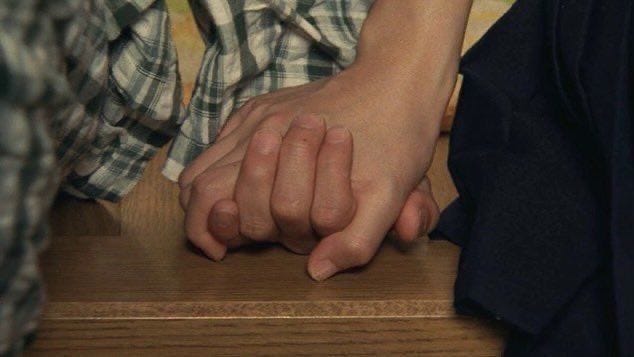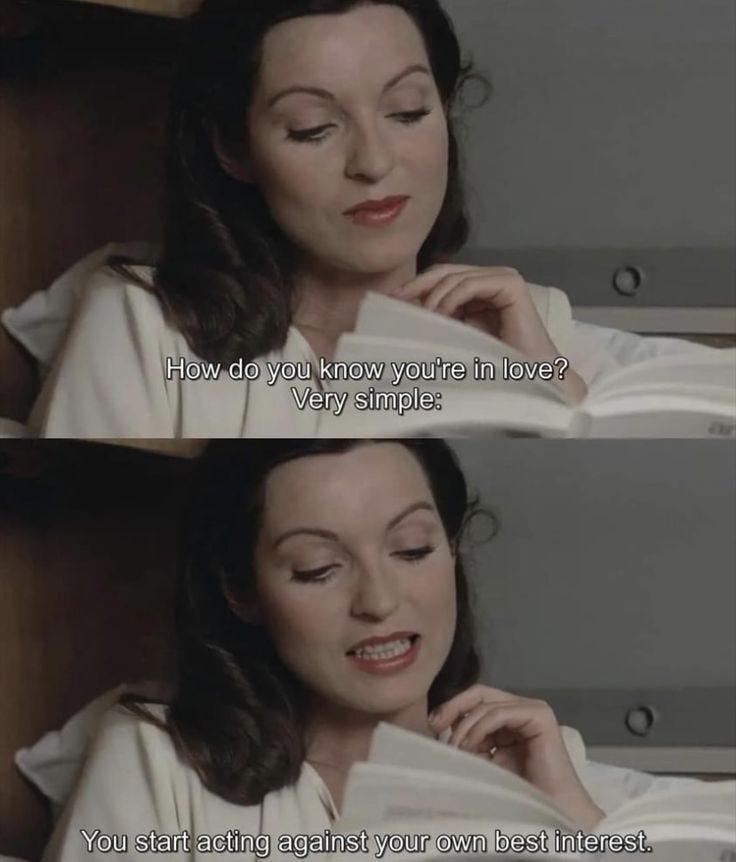social media says that we are in the midst of the male loneliness epidemic. the language around it has grown louder, more urgent, more desperate. it fills your entire feed and podcasts. men are alone, emotionally isolated, relationally fractured, spiritually starved. they say this is a crisis of modernity. others say it is the natural consequence of a culture that has unlearned how to need one another. but what strikes me is how many speak of this loneliness as if it simply happened to them. like rain or famine. as if it was not made, cultivated even, by a culture of ego, pride, and convenience.
there is a difference between loneliness that humbles and loneliness that demands pity. i’ve noticed a strange turn to this, men who speak of their isolation as though it entitles them to intimacy. as though the ache alone should summon love. but desire is not discipline. longing is not character. and just because you are lonely does not mean you are ready to be known. i don’t doubt the ache is real. but what have you done with it? what has it made you become?
somewhere along the line, intimacy was mistaken for access. love was mistaken for ease. men were taught that love would arrive unconditional, soft, already patient, without ever having to be earned through devotion or self-confrontation. many have not been taught how to listen. how to apologize. how to carry something that isn’t their own sorrow. they want a woman to open their heart while keeping theirs locked. and when they find themselves alone, they call it the world’s cruelty, not the shape of their own silence.
the tragedy is that women are not unlonely either. we are all fractured by the same modern myths. that freedom is found in detachment, that the self is a project not a soul. women, too, are hurting. exhausted from explaining why softness is not submission, why standards are not vanity, why silence is not an apology. but at the very least, many women have been trained in emotional labor. we know how to talk, even when the talking is hard. we know how to mourn, how to mend. that is not superiority. it is a burden, but also a form of survival.
what disturbs me most is how many of these men crying out for love claim to be spiritual. some even say they are christian. they recite scriptures, but do not live it. they treat women as reward rather than reverence. they use faith to sanctify entitlement. but the gospel never promised ease, didn’t it? it promised transformation. if you want to be loved, you must become someone who can love well. god is near to the brokenhearted, but proximity is not permission to stay broken. christ does not coddle the ego, he refines it.
we are warned in the bible about the man who looks in the mirror and forgets what he saw. about the fool who listens but does not act. about the religious who speak without living. loneliness, in this light, is not merely suffering, it is often a symptom of pride, and disobedience. of a refusal to change. and yet we glamorize it. we put this on social media, we make confession for repentance. but they are not the same. confession is easy. repentance costs.
i personally, don’t think men are too lonely. i think they’re not lonely enough. and not in the right ways. the loneliness that transforms you is the kind that brings you to your knees, not to be pitied, but to be remade. it is the kind that forces you to ask yourself questions about yourself. of who you have hurt, and why you keep finding yourself here. there is dignity in that kind of sorrow. there is a god in it too.
so many of us, men and women, have come to worship the idea of love rather than the labor of it. we want to be adored, but not held accountable. we want attention, but not true intimacy. we want someone to witness our pain, not to challenge the parts of us that caused it. so what now?
we end up alone. because we keep choosing versions of ourselves that are easier to look at than to live with.
maybe this sounds cruel, that to ask the lonely to take responsibility for their isolation is unkind. but kindness that does not include truth is just flattery. and the truth is that many are not lonely because no one loves them. they are lonely because they have made themselves hard to love. performative, walled off, or too enamored with their own woundedness to truly witness someone else’s.
there is a false humility in saying no one wants me. it is a statement that ends the conversation. but the harder question is would i want me, as i am now? with all the defensiveness, the passivity, and the avoidance. what if the problem isn’t that no one is coming? what if the problem is you’ve given them nothing to come toward?
biblically, the garden was lost not because of desire, but because of disobedience. adam didn’t just eat, he blamed. he pointed outward when the rot had already begun within. it is the oldest pattern in the book: the refusal to look inward. the refusal to take spiritual responsibility. you cannot love anyone well if you have not wrestled with your own capacity for destruction. and yet, both secular and spiritual modern culture has made accountability feel optional. something you do after you’ve been forgiven. but that’s not redemption. that’s performance.
the thief on the cross, he did not ask for escape, only for remembrance. he did not blame. he did not excuse. he named his brokenness and still asked to be seen. and this is exactly what we are missing, not false accountability, but true interior change. not curated sadness, but real conviction. not attention, but repentance. and yes, it’s terrifying. but so is staying the same.
real love, whether it’s romantic, platonic or divine, it demands interior maturity. it demands that you have somewhere to take someone beyond the ache of being alone. you need a house built with patience and honesty. a life that someone else can walk into and not be asked to carry all the weight themselves. most people don’t leave because you’re flawed. they leave because they were made into a witness of your self-neglect. and that kind of proximity eventually feels like punishment.
loneliness is not the punishment. it’s the classroom. and if it’s happening to you again and again, that isn’t a curse. it’s an invitation. not to change who you are to be loved, but to become who you were meant to be so you can love. to be alone long enough to start transforming. to leave being the echo chamber of self-pity and ask harder, holier questions.
the epidemic is not loneliness, it is lovelessness. a world that no longer understands what love requires. we have mistaken attention for affection, compatibility for commitment, aesthetics for depth. but love is rarely poetic. it’s maintenance. it’s decisions. it’s refusal. it’s presence. and the people who have it are not the most charming. they are the most willing to change.







so well written